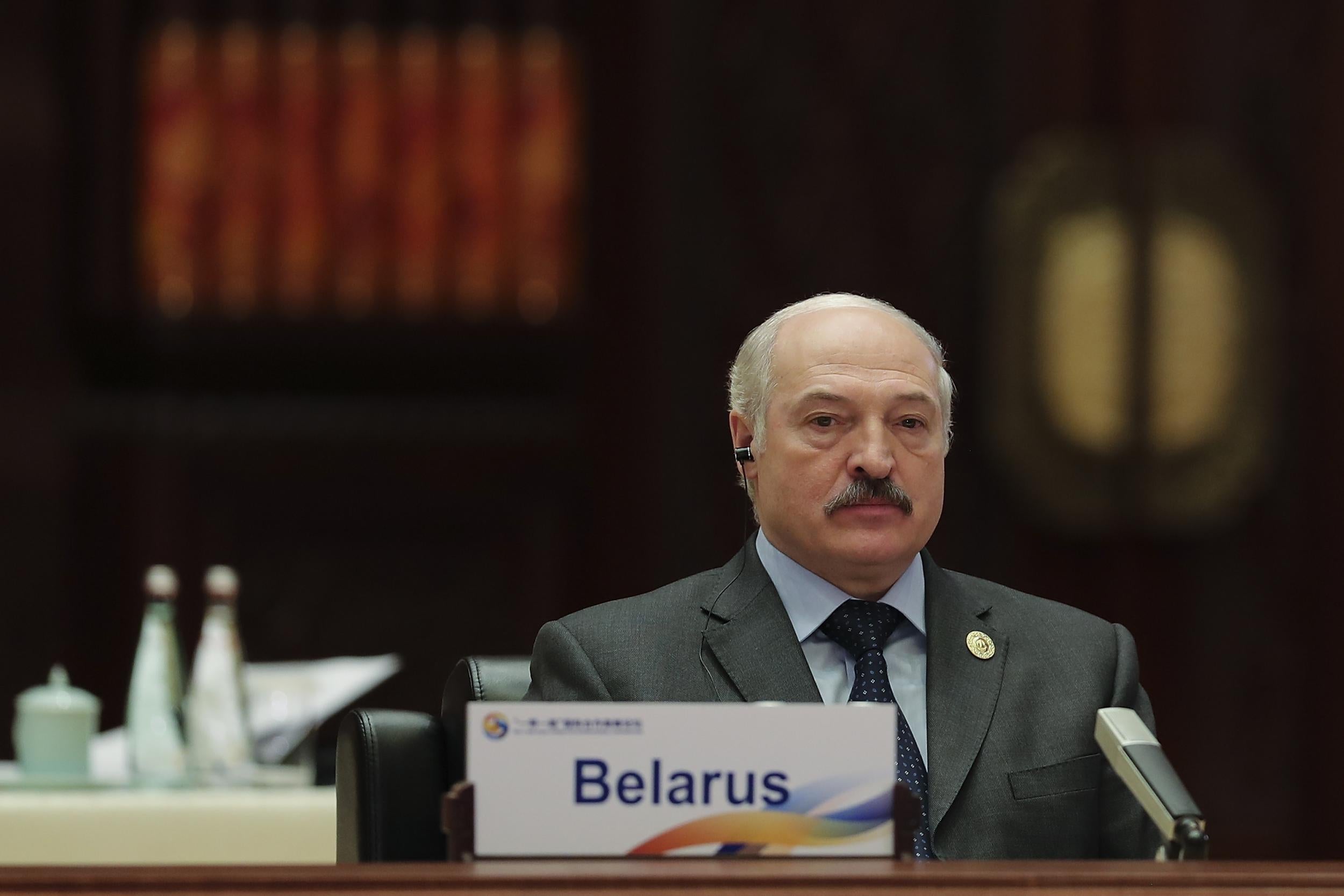Alexander Lukashenko cannot survive as president of Belarus – and that matters to Vladimir Putin
Why should elections in Belarus be taken seriously? Because, writes Vladislav Inozemtsev, the country is seen as one of the most authoritarian in Europe, and freedom is considered one of the greatest Western values

After I travelled to Kyiv in August 2004 to meet Viktor Yuschenko, for what then appeared to be the one and only favourable interview with him published in Russia that year, I returned to Moscow certain he would be elected the next president of Ukraine. As protests grew across the same country in early 2014, I had no doubt Viktor Yanukovich would soon deposed by the passionate crowd.
Now, like then, monitoring what has happened across Belarus cities during the last few weeks, I am sure there is no chance for that country’s president, Alexander Lukashenko, to survive elections scheduled for later this summer.
Just six months ago Lukashenko’s positions seemed unchallenged. The strongman appeared a fierce defender of Belarusian sovereignty as President Vladimir Putin of Russia tried to “closer integrate” two post-Soviet nations.
However, as the Covid-19 pandemic struck and the president preferred to proclaim it “nonsense” and underplay its impact, something appeared to change. Belarus has around 54,000 confirmed cases of Covid-19 while neighbouring Poland – with four times the population – only has around 30,000 cases.
In early May, a popular YouTuber – Sergei Tikhanovsky – announced he wants to run for president. He is unable to run himself due his arrest following a crackdown on opposition figures, but his wife’s bid as a surrogate has been enthusiastically supported. The queues for signing Svetlana Tikhanovskaya’s ballot petition stretched half a mile in Minsk, Brest and Gomel.
Polling is difficult in Belarus, given the nature of the government, but Ms Tikhanovskaya is said to have strong support, having collected enough signatures to stand, while another more establishment candidate – the former CEO of Belgazprombank, Victor Babariko, also has many backers.
The formal list of the candidates should be announced by the end of today, and both the exclusion of these two contenders or Lukashenko’s “win” over them in August will almost certainly end up in another “velvet revolution”.
Why should elections in Belarus be taken seriously these days? Not only because the country is seen as one of the most authoritarian in Europe and freedom is considered one of the greatest Western values – but also since for at least quarter of a century Belarus has served as Russia’s forerunner.
I have previously argued that Russian leadership followed in Lukashenko’s steps since the mid-1990s. The slogans of President Boris Yeltsin’s 1996 campaign calling the citizens to “vote by your hearts” were copied from those of Lukashenko’s campaign of 1994. As Putin became Russia’s president he proclaimed the return to “stability” as Lukashenko did three years before.
Putin, in a move similar to Lukashenko’s returning of the Soviet-era Belarusian flag and seal, brought back the Soviet-time hymn in Russia – this was done less than a year after both men took power. In both countries the parliaments and courts were transformed into departments of presidential administrations.
Russian laws about “foreign agents” and “unwelcomed organisations” you could argue are simply copied from the Belarusian legislature, into which they were introduced six years earlier.
Finally, the idea of making Putin able to be re-elected once again that stands behind the coming constitutional referendum, was not unlike something introduced by Lukashenka back in 2004. Russia would certainly notice if Lukashenko’s model of power was cast aside.
A Belarusian return to democracy would certainly jolt Moscow more than Ukraine’s moves in recent years. Ukraine has been long-considered by Russians as a quite different nation that always looked Westwards rather than followed Russia’s path. Belarus, on the contrary, has been seen as the most trusted friend. Russians deeply respect Belarusians’ sufferings during the Second World War and citizens of both nations enjoy equal economic rights as the Union State of Russia and Belarus, a treaty in place since 1999.
Therefore, I would argue that as Ukraine’s choice for democracy and its rejection of Soviet-style politics was not unexpected, but the same turn made by Belarus would prove a difficult blow to Russia.
Lukashenko is Belarus in the very same sense that Putin is Russia (as his current Duma Chairman once said: ”No Putin, No Russia”). President Putin is trying just now to do what President Lukashenko already accomplished – to perpetuate his power and capitalise on Soviet heritage rather to modernise the nation. A Lukashenko failure in his re-election bid would be eyed warily by Moscow..
What is also intriguing is the tensions between Putin and Lukashenko are on the rise. Since 2000 Russia has subsidized Belarus to the tune of more than $100bm while got little in exchange. Lukashenko has criticised Putin on numerous occasions in recent years over border disputes and other issues and leads the Russia-sceptical forces inside the Eurasian Union, Putin’s favourite “geopolitical” construct. So Moscow may have neither instruments nor willingness these days to intervene in Lukashenko’s favor;
Belarus also has neither the ethnic divides that facilitated Russia’s incursions into Ukraine, nor Russian passport holders – who were present inside the Yanukovich-era Ukrainian leadership.
In Eastern Europe, 2020 might well become the Year of Belarus in the same way 2014 became the Year of Ukraine. The world should be watching, assisting if a seismic change does come to pass.
Vladislav Inozemtsev is the director of the Centre for Post-Industrial Studies in Moscow
Join our commenting forum
Join thought-provoking conversations, follow other Independent readers and see their replies
Comments